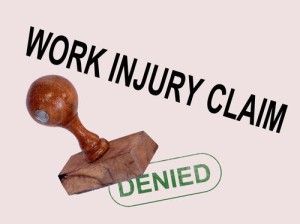Top Class Actions’s website and social media posts use affiliate links. If you make a purchase using such links, we may receive a commission, but it will not result in any additional charges to you. Please review our Affiliate Link Disclosure for more information.
A woman from California has brought a disability insurance lawsuit against Unum Life Insurance Company of America, claiming they improperly denied her benefits.
Plaintiff Leticia O. worked as an engineer for the City of Fontana, Calif. from 2000 to 2013. As a city employee, she was covered by the city’s disability insurance plan administered by Unum. She alleges that in June 2012, the circumstances of her job caused her to develop emotional disorders, diagnosed variously as anxiety disorder, depression, and adjustment disorder with mixed anxiety and depressed mood. Soon after her mental conditions were identified, her doctor informed her she was pregnant.
She also was later diagnosed with headaches and myofascial pain syndrome of the cervical spine and thoracic spine. Her cervical spine diagnosis was later upgraded to cervical multi-level discogenic disease, central disc extrusion, and multi-level facet arthropathy.
Background On Unum Lawsuit
In February 2013, Leticia submitted a claim to Unum for both short term and long term disability insurance benefits. Unum denied her claim for short term benefits later that May, saying that the medical evidence she provided left her functional capacity unclear. Unum then denied her claim for long term benefits in September, saying that the medical evidence provided does not show her behavioral health problems caused any impairment.
Leticia appealed Unum’s denial, and Unum responded by affirming the denial in letters sent December 2013 and February 2014.
Leticia believes Unum’s disability insurance claim denial was in violation of the federal Employee Retirement Income Security Act of 1974, commonly known as ERISA. She says Unum denied her claims without any medical evidence supporting their denial, while at the same time disregarding the opinions of her treating physicians that she was unable to participate in any type of gainful employment.
She also argues that Unum should have considered the unusual work circumstances that brought about her emotional disorders, which she describes as bullying, false accusations, and threats. She says Unum also should have accounted for the effect on her disability of a 2004 accident and the physical circumstances of her work, which she says required frequent physical exertion and abnormal body positioning.
Leticia also says Unum breached the terms of the insurance plan by applying a definition of “disability” that was different from the definition stated in the disability insurance policy.
In addition to her opposition to Unum’s denial of disability benefits, Leticia also argues that she was entitled to an exemption from paying premiums on her Unum life insurance plan during the time she says she was totally disabled, which she says began in July 2012 and lasted until August 2013.
For compensation, Leticia is asking the court to award her disability benefits related to her pregnancy and her 2004 injury and payment of life insurance benefits, as well as costs and fees associated with her disability insurance lawsuit. She is also asking for general enforcement of her rights under the plan and clarification of her right to future benefits.
Leticia’s Disability Insurance Lawsuit, Case No.5:15-CV-01542, in the U.S. District Court for the Central District of California.
Do YOU have a legal claim? Fill out the form on this page now for a free, immediate, and confidential case evaluation. The bad faith insurance attorneys who work with Top Class Actions will contact you if you qualify to let you know if an individual lawsuit or Unum class action lawsuit is best for you. [In general, Unum bad faith lawsuits are filed individually by each plaintiff and are not class actions.] Hurry — statutes of limitations may apply.
ATTORNEY ADVERTISING
Top Class Actions is a Proud Member of the American Bar Association
LEGAL INFORMATION IS NOT LEGAL ADVICE
Top Class Actions Legal Statement
©2008 – 2024 Top Class Actions® LLC
Various Trademarks held by their respective owners
This website is not intended for viewing or usage by European Union citizens.
Get Help – It’s Free
Get Help With Your Long Term Disability Insurance Appeal
If you were denied a disability claim or had your disability benefits terminated without reason, you may be able to take legal action. See if you qualify by filling out the short form below.
An attorney will contact you if you qualify to discuss the details of your potential case at no charge to you.













